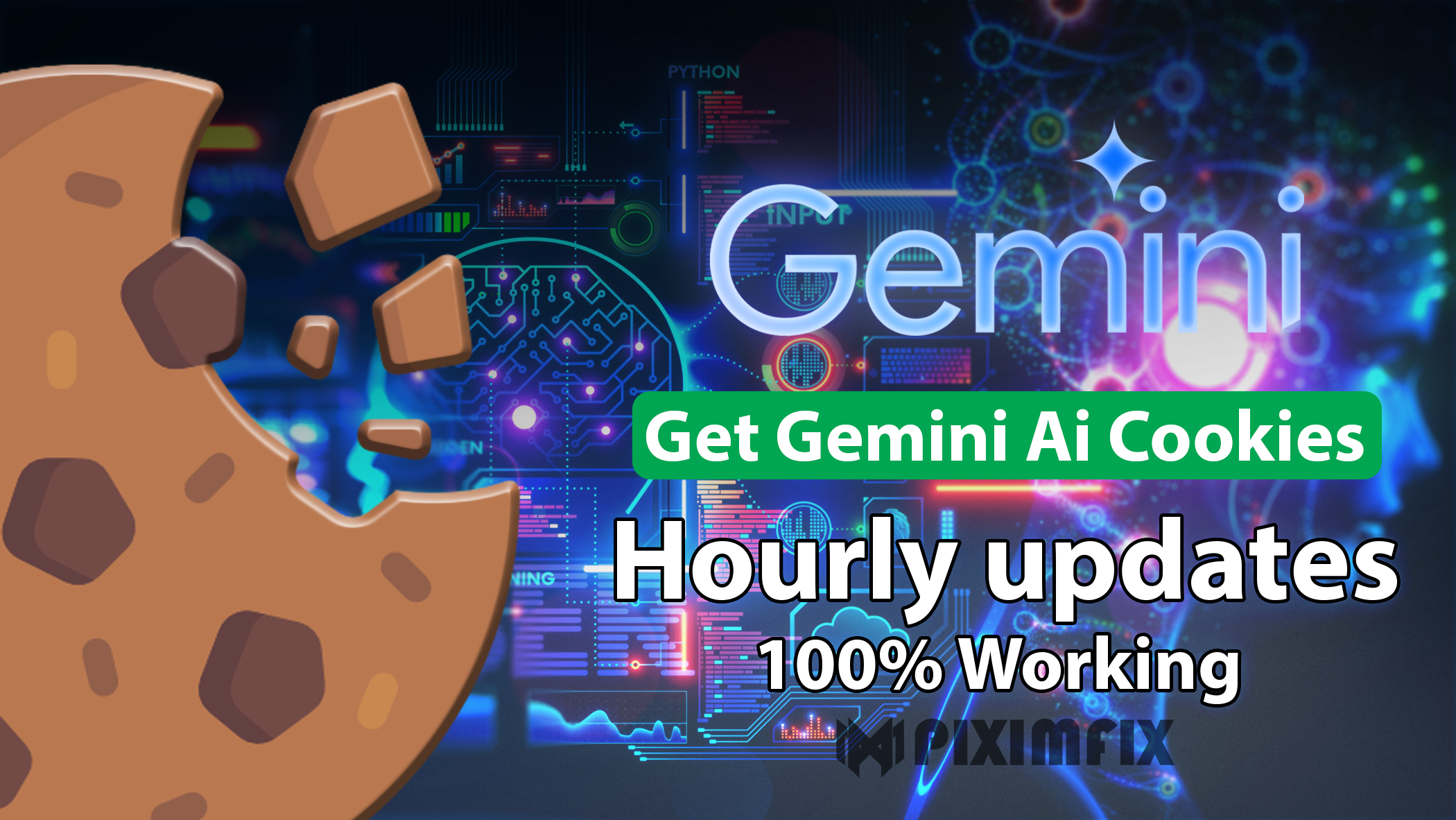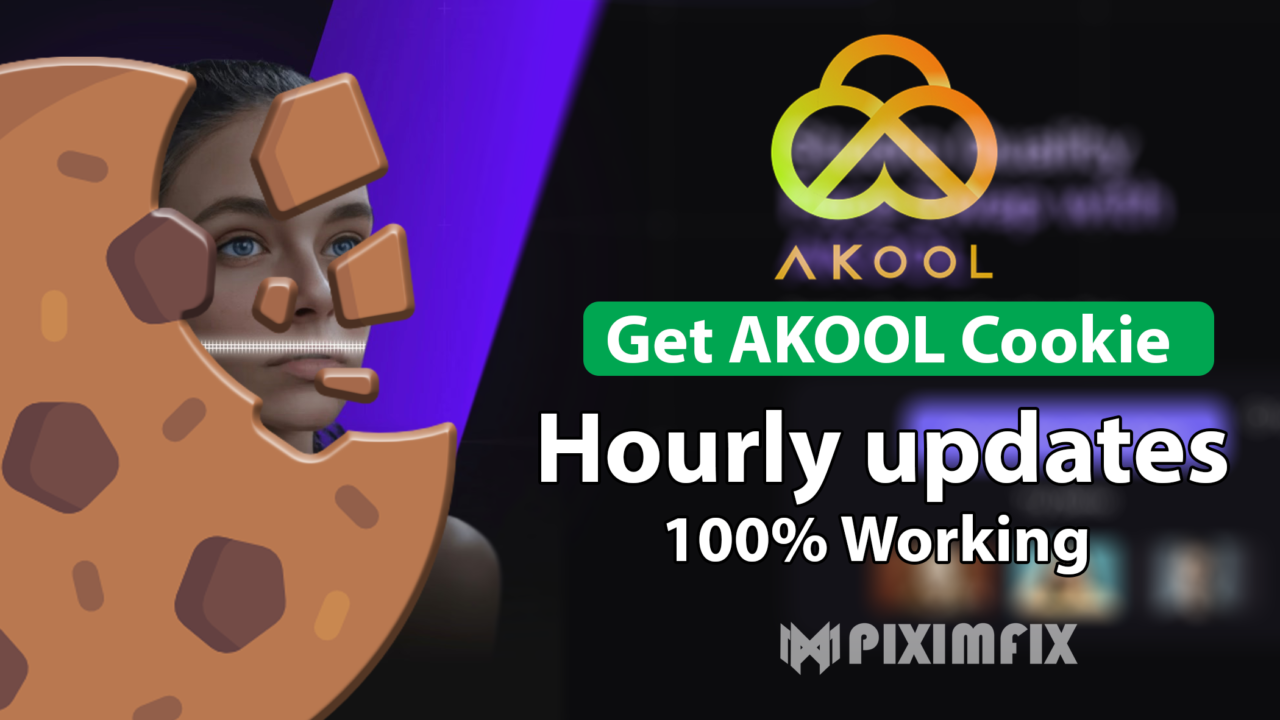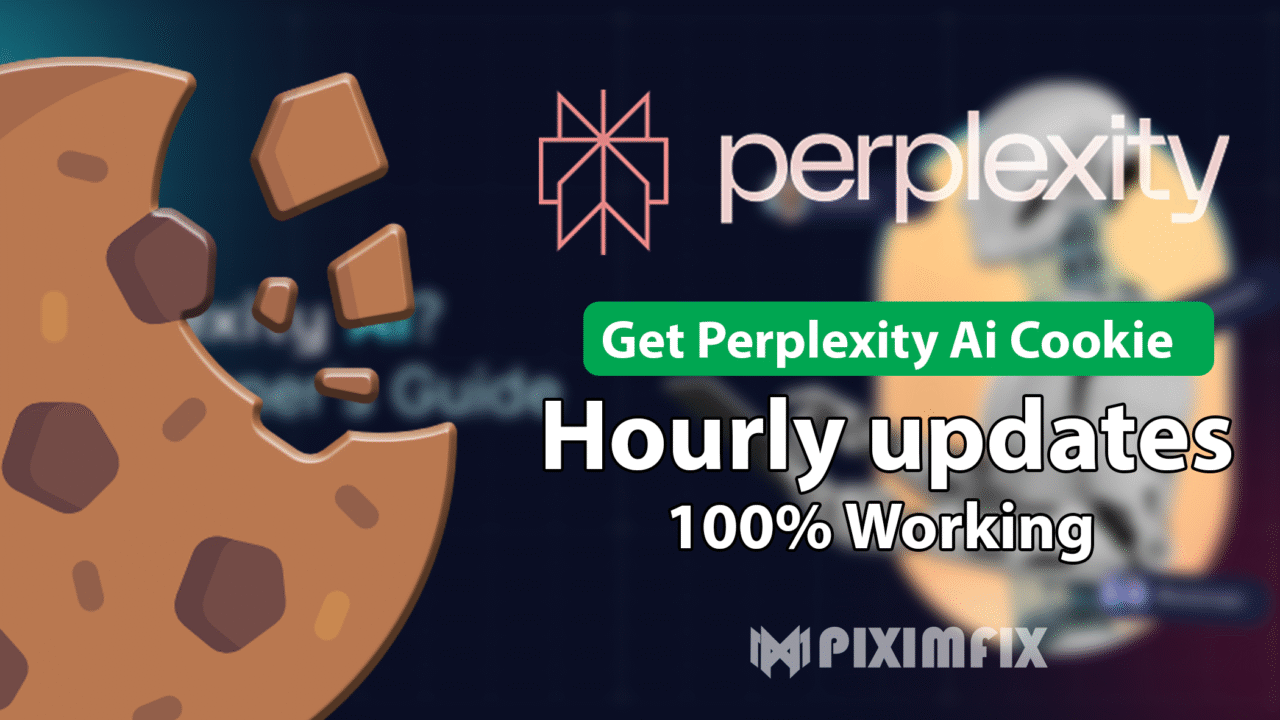Imagine you’re eager to test Google’s new Gemini AI and its advanced features – maybe you want it to write code for you or summarize a huge report. You fire up the Gemini chatbot ready to be impressed, only to hit a paywall prompting you to upgrade. Frustrating, right? You’re not alone. Many enthusiastic users search for workarounds like “Gemini AI premium cookies” in hopes of unlocking premium features without paying.
In fact, some websites even claim to have Gemini AI Premium cookies updated hourly for free access. But before you dive into these hacks, let’s talk about what Gemini AI is, why premium access is so coveted, and the risks of using shared cookies. (Spoiler: We’ll also cover safer alternatives and why supporting the official product might be the better move.)
What Is Gemini AI?
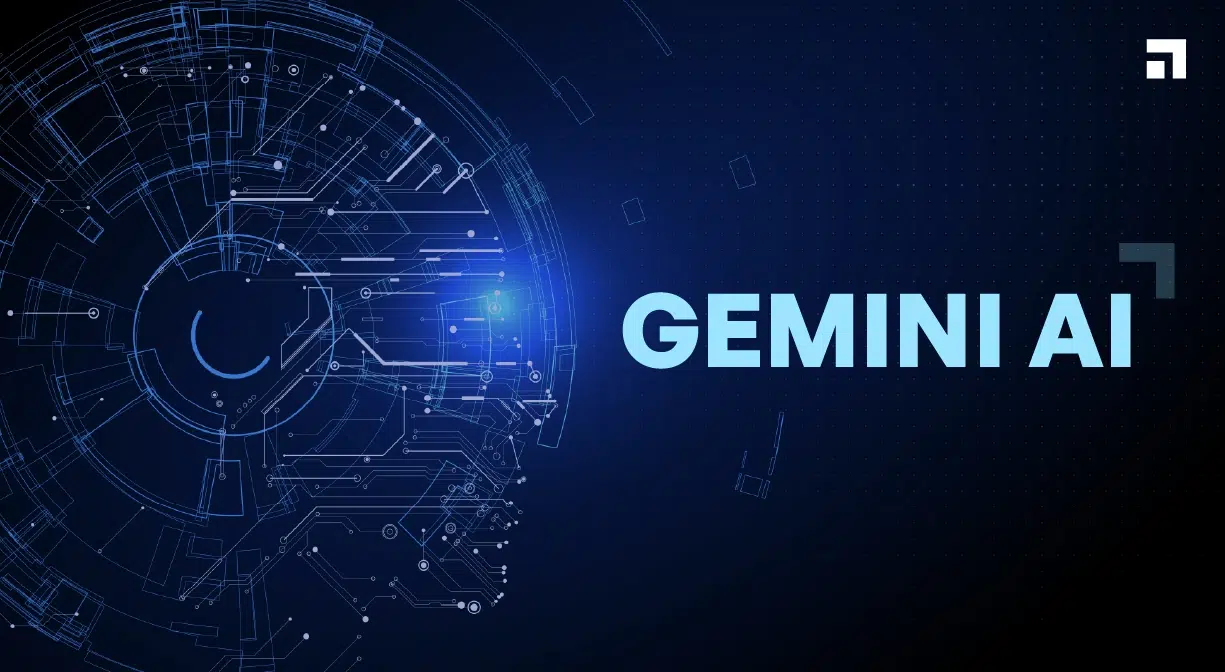
Gemini AI is Google’s latest AI chatbot and virtual assistant – essentially the evolution of Google Bard. It’s designed to help with everything from answering questions and brainstorming ideas to drafting content and coding. Think of Gemini as an all-in-one smart assistant that can pull information from various sources and even work across different media.
For example, you can snap a photo of ingredients in your fridge and ask “What can I cook with these?” – Gemini will analyze the image and suggest recipes. You can brainstorm with it (“Help me plan a date night with a sushi dinner followed by dessert nearby”) and Gemini will handle multi-step requests by searching for restaurants and dessert spots. It can also generate images from your prompts and summarize lengthy text for you; for instance, “Summarize all the emails from today and tell me the key points I need to know” – Gemini will scan your inbox and give you a concise rundown.
In short, it’s like having Google Search, an AI writer, and personal assistant all rolled into one conversational tool.
Free vs Premium Tiers: Google offers a basic free tier of Gemini (included on new Pixel phones and accessible on the web) and a premium tier as part of the Google One AI Premium Plan. Free users get to experience Gemini’s core abilities, but with some limitations. Premium users (sometimes referred to as having Gemini Advanced) unlock the full power of Google’s most advanced models and features. We’ll break down these differences next, but the key idea is that the free version is great for simple tasks, while Gemini Premium opens up much more advanced AI capabilities that heavy users crave.
Free vs. Premium: Why People Want Full Access
If the basic Gemini is so helpful, why are people hunting for “premium cookies” to get the full version? The short answer: the premium tier of Gemini is significantly more powerful and unrestricted. Google severely limits the free plan in comparison to entice users into the $19.99/month AI Premium subscription. Here are some major differences:
- AI Model and Quality: The free Gemini app currently runs on a less powerful model, whereas Gemini Advanced (premium) uses Google’s largest and most capable model (originally the Ultra 1.0 model when launched). This means premium users get much better reasoning, more accurate answers, and the ability to handle complex tasks that might stump the free version. Google described Gemini Advanced as offering “enhanced reasoning and complex task handling” thanks to that stronger model. In practice, advanced subscribers find the AI performs better on challenging prompts (like complex coding or math problems) because it has more “brainpower” under the hood.
- Context Length and File Size: Perhaps the biggest upgrade is how much information Gemini can handle at once. Free users have a context window around 32,000 tokens (roughly equivalent to 50 pages of text), which sounds large but can be quickly exceeded if you’re uploading multiple documents. Premium users get a massive 1 million token context window – about 1,500 pages of text! This huge context means with Gemini Advanced you could feed in an entire book, large datasets, or lengthy codebases and it can consider all of it when responding. Free Gemini would hit a wall long before that. For anyone wanting to analyze big files or long conversations without losing context, the premium tier is a game-changer.
- Advanced Features (Coding, Integrations, etc.): A lot of Gemini’s coolest capabilities are gated behind the premium plan. For example, Gemini Advanced can upload and analyze whole code repositories to help debug or explain your code – a feature free users don’t have. Premium subscribers also get priority access to new experimental features. Google often rolls out its latest AI models or tools (like improved reasoning modes or special “Gems” such as a chess-playing AI) first to Gemini Advanced members. The premium plan also integrates Gemini deeply into Google’s Workspace apps like Gmail, Docs, Sheets, and more, so you can use the AI within those apps to draft emails, generate summaries in Docs, create slide content, etc. Free users don’t get that tight integration. Even features like “Deep Research”, which lets Gemini scour the web and hundreds of sources in real time to compile research reports, are only available in a limited form to free users (a few tries per month) but unlocked fully for premium. In summary, the premium plan unlocks Gemini 1.5 Pro (Google’s more advanced model version), allows much longer conversations/uploads, enables coding assistance, and embeds Gemini’s help into other Google products. No wonder anyone who’s tasted these features is reluctant to go back to the free constraints!
Given these differences, it’s easy to see why people seek full access. The free plan is fine for light use, but if you’re a power user – say a developer wanting AI code help or a researcher needing long-document summaries – the premium features are extremely tempting. Some folks may not want to pay $20 every month, so they start looking for shortcuts, which brings us to the idea of sharing cookies to get premium for free.
What Are “Premium Cookies” and How Do They Work?
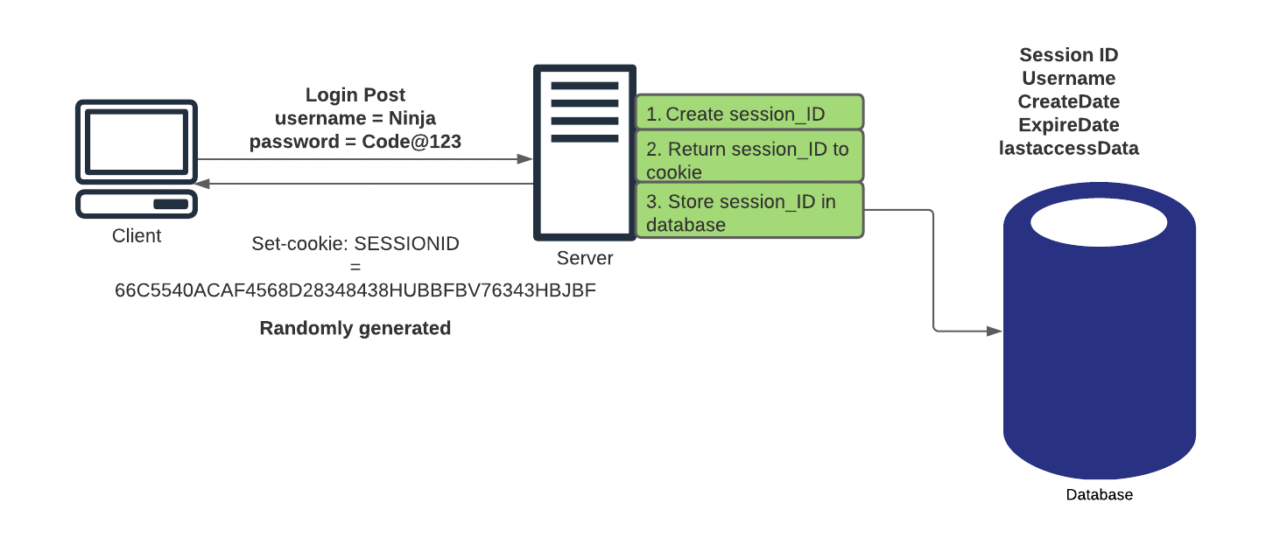
Browser cookies might sound like a sweet treat, but in tech terms they’re small pieces of data websites store in your browser to remember things about you. For example, when you log into Gemini (or any site), the site sends a cookie to your browser to keep you logged in on subsequent visits. That cookie contains session info like your authentication token and preferences. In plain language: cookies store your login session – they tell the website “this user is already authenticated as [Premium User], no need to log in again.”
“Premium cookies” in this context refer to the login/session cookies from a Gemini AI Premium account. The idea is that someone who has a paid Gemini subscription can export their login cookies and share them. Another user can then import those cookies into their own browser, essentially fooling the Gemini site into thinking the premium user has logged in on that browser. This tricks Gemini into granting premium access features to the second user, because from the site’s perspective they are the premium account (since the browser is presenting the same session tokens).
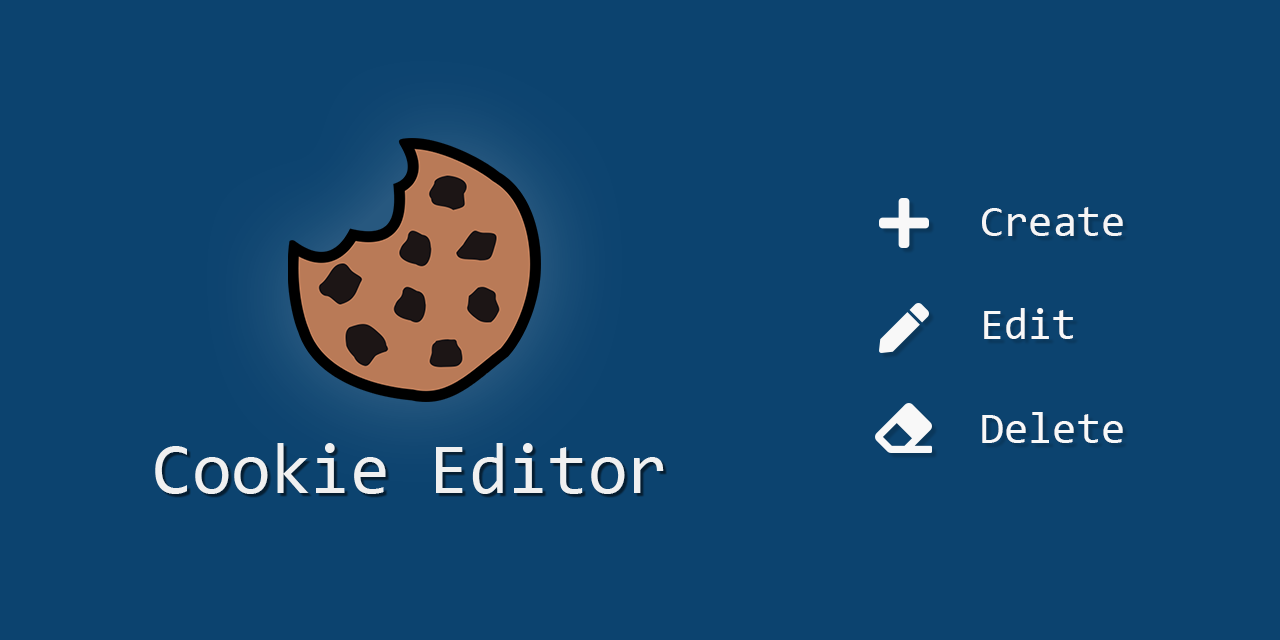
How is this done practically? Through browser extensions that let you manipulate cookies. Tools like EditThisCookie or Cookie-Editor allow users to export their current cookies and import cookies via a JSON text or file. So a generous (or more likely, pirating) soul might post a block of Gemini Premium cookie data online. By copying that data and using a cookie editor extension to import it for the gemini.google.com site, your browser will now carry the logged-in session of that person’s premium account. Refresh Gemini’s page, and voila – you see premium features unlocked as if you were the subscriber. It’s basically a session takeover, no password needed, enabled by the fact that cookies remember who is logged in.
It’s important to note that these shared cookies don’t give you the user’s password or email – just a temporary login state. And they are highly temporary. Cookies can expire, and the original user can invalidate them (for instance, by logging out or changing their password). That’s why the ones shared online often claim to be “updated hourly” – because an old cookie usually stops working quickly. In the next section, we’ll go through how people use these cookies step by step, but also the many caveats and risks involved.
How to Use Gemini Premium Cookies (Step-by-Step)
⚠️ A quick caution: We do not endorse using shared cookies to bypass paywalls. This walkthrough is for educational purposes so you understand the method. If you choose to try it, be aware it’s risky and against terms (more on that later).
That said, here’s generally how users attempt to use Gemini AI Premium cookies to get full access without paying:
- Get a Cookie Editor Extension: First, you need a browser extension that lets you easily view, delete, and import cookies. Popular choices include Cookie-Editor (Chrome/Firefox) and EditThisCookie. Install one of these in your browser (Chrome Web Store or equivalent).
- Obtain the Premium Cookie Data: Next, find a source of Gemini premium cookies. This is usually a website or forum where someone has posted the cookie in JSON format (a chunk of text with fields like name, value, domain, etc.). We won’t link them here, but these sites often label it as “Gemini Premium cookie – copy this code.” Important: The cookie corresponds to an active session of a real premium account.
- Go to the Gemini Website: In a new browser tab, navigate to the official Gemini web app (for example,
gemini.google.comor the relevant URL for the chatbot interface). Make sure you are logged out of any personal Google accounts on that site to avoid conflicts. It might help to use an incognito window or a separate browser profile, so you don’t mix your own Google account with the imported one. - Import the Cookie: Click on the cookie editor extension icon while on the Gemini site. Use the extension’s “Import” feature and paste the JSON text of the premium cookie that you copied in step 2. Save or apply the changes. This will plant the provided cookie values into your browser for the Gemini domain. Essentially, you are dropping in the other user’s session token.
- Refresh the Page: After importing, refresh the Gemini app webpage. If the cookie was valid and correctly imported, the site should load as if you are already logged in with a Premium account. How can you tell? Look for signs like the absence of upgrade prompts, or the presence of premium features. For example, you might see Gemini Advanced model available in the model switcher, higher usage limits, or options to use Gemini in expanded ways. You can try a premium-only feature (like uploading a large PDF or using the code assistant) to confirm it’s working.
- Troubleshoot if Needed: If it didn’t work, a few things could be wrong. The cookie might have expired (very common, maybe it was “updated hourly” but you were too late). If so, you’ll need to find a newer cookie and try again. Or, you might have other cookies interfering – make sure to clear any old Gemini-related cookies first or use a fresh incognito session before importing. Also ensure you do not log out of Gemini after importing the cookie, because that will invalidate the shared session for you (and possibly everyone sharing it).
Common Issues: Because this method is a hack, it’s fickle. The shared session could be terminated at any time by Google or the account owner. Sometimes multiple people using the same session can trigger security measures (imagine dozens of “clones” of the same login – that looks suspicious on the server). Browser updates or caches can also cause the cookie not to stick. In short, it’s a cat-and-mouse game – hence the constant need for fresh cookies.
Limitations and Risks of Using Shared Cookies
Using someone else’s premium cookie might sound easy, but it comes with serious limitations and risks. Before you try it, consider the following:
- 🚫 Not All Features Work: You might get premium access on the Gemini web app, but certain features won’t carry over. For example, integration with Gmail or Docs requires your Google account to have the subscription. Using a cookie, you technically are the sharer’s account on the Gemini site, but you likely can’t use Gemini inside your own Gmail/Docs unless you also somehow import their credentials for those services (not recommended!). So you’re not getting the full ecosystem benefit – just the chatbot’s abilities on its standalone page.
- ⏱️ Session is Temporary: The cookie workaround is always short-term. Shared cookies often expire within hours or days. The original account owner might invalidate the session or Google might detect and rotate tokens. You’ll find yourself periodically hunting for new cookie dumps to maintain access. It’s an unstable way to work – imagine being in the middle of a project and suddenly losing access because the cookie died.
- 🔐 Privacy and Security Risks: When you use someone else’s cookie, you are effectively logged in as them. This raises many issues. Your queries and chats are being done under their account (they might even see your conversations in their history!). Conversely, you have no idea who this person is – could they have embedded something malicious in the cookie code? (Cookies are just text, but a savvy attacker could trick people into importing cookies that belong to a fake site, stealing your info. It’s a stretch in this scenario, but not impossible.) Also, if you forget to isolate the session, you could accidentally give a stranger access to some of your Google data or vice versa.
- ⚖️ Against Terms of Service: Using shared cookies to bypass a subscription is almost certainly a violation of Google’s Terms of Service. It’s essentially unauthorized access to a service you haven’t paid for. If Google detects unusual activity on that premium account (like logins from multiple locations), they could ban or suspend the account. That hurts the original owner and cuts off everyone using the cookie. In the worst case, if you were somehow traced, your own Google account might be flagged for misuse. Companies are within rights to ban users for trying to circumvent paywalls. While it’s unlikely Google will hunt down every cookie user, it’s a real risk.
- 🤕 No Support or Reliability: If (when) something goes wrong with this method, you’re on your own. You can’t exactly call Google support and say “Hi, I’m using someone else’s cookie and it stopped working.” 😅 The whole arrangement is unofficial, so expect glitches. The cookie might allow basic use but maybe not let you change certain settings or access account-specific features. It’s a barebones workaround – nothing more.
In summary, proceed at your own risk. The cookie trick might be okay for a quick demo of Gemini’s premium capabilities, but it’s not a sustainable or secure way to use the service regularly. Next, we’ll discuss what the official Gemini AI Premium includes (it’s more than just the chatbot upgrades) and why many find value in subscribing legitimately.
Gemini AI Subscription Plans – What’s Included in AI Premium?

Google’s AI Premium Plan (available through Google One subscription) isn’t just Gemini Advanced by itself – it comes bundled with a suite of benefits. Here’s a simple breakdown of what you get for $19.99/month as a subscriber of Google’s AI Premium (which includes Gemini Premium):
A Google One AI Premium plan infographic, highlighting included benefits like 2 TB cloud storage, Gemini Advanced access, and integration with Google apps.
- Gemini Advanced AI Access: Full use of Gemini’s most advanced AI models and features. You get priority access to new AI innovations (Google often rolls out experimental models to subscribers first) and the ability to use Gemini’s best version (e.g. 1.5 Pro, Ultra models) for superior reasoning and task handling. Essentially, this is the premium chatbot experience we’ve been discussing – with the 1M token context, coding help, Deep Research tool, and other advanced capabilities unlocked.
- Gemini in Gmail, Docs, Slides & More: The premium plan integrates Gemini AI across Google Workspace apps. That means in Gmail you can have Gemini draft or refine emails for you, in Google Docs it can help write or summarize text, in Sheets it might assist with formulas or data insights, and so on. This is the formerly branded “Duet AI” features now supercharged by Gemini. It’s available in over 150 countries (English only at the moment) for subscribers, allowing you to use AI in the apps you use every day at work or school.
- 2 TB Expanded Cloud Storage: The plan also includes 2 terabytes of Google One cloud storage. This storage is shared across your Google Drive, Gmail, and Google Photos. So not only do you get AI, you also get plenty of space to store files and memories (a nice perk if you were considering a storage upgrade anyway).
- Extra Google One Perks: Because it’s a Google One Premium tier, you enjoy all the usual perks that come with a 2 TB plan. This includes 10% cashback in Google Store purchases (if you buy hardware like Pixel phones, Nest devices, etc., you get store credit back), enhanced Google Photos editing features (e.g. the Magic Eraser tool to remove objects from photos), VPN security for your devices (Google’s VPN to encrypt your internet connection), and priority customer support from Google. Essentially, you get the VIP treatment in the Google ecosystem.
- NotebookLM Plus (AI Notebook) Access: Google has a tool called NotebookLM (an AI-powered note-taking and research app), and AI Premium members get NotebookLM Plus features as well. This means higher usage limits and exclusive features for that tool, which can be useful if you do a lot of research or study – though this is a more niche addition. (This was slated to roll out in early 2025, so by now subscribers have it or will soon.)
As you can see, the AI Premium subscription is more than just the chatbot – it’s a whole package targeting power users. Google basically bundled the advanced AI with their highest Google One tier. At $19.99/month, it’s not cheap, but they do offer a lot in that bundle.
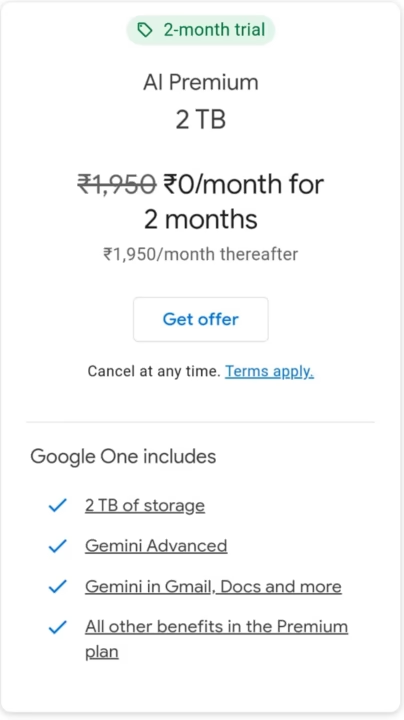
In fact, Google has been running promotions like a two-month free trial for new AI Premium users. If you’re curious about Gemini’s full potential, that trial is a legit way to experience it without immediate payment.
(Pricing note: There is also talk of an “AI Pro” or “Ultra” plan in some markets – for instance, a higher tier with 30 TB storage, YouTube Premium included, and possibly even more advanced AI access. The majority of individuals, however, will be looking at the standard AI Premium 2 TB plan we described.)
Legal and Ethical Considerations
Before wrapping up, it’s worth reflecting on the ethics and legality of using cookie hacks for premium access. While it might feel harmless (“I’m just borrowing a login, not hacking Google’s servers or anything”), it does occupy a gray area at best. Companies invest huge resources into developing these AI models. Gemini is the result of expensive research at Google (and DeepMind). By circumventing the paywall, you’re not supporting the product – if everyone did this, there’d be less incentive for companies to create such tools or improve them.
From a legal standpoint, sharing cookies could be viewed as unauthorized access. Google’s terms of service prohibit account sharing and any attempts to evade fees. If you knowingly use someone else’s credentials (which a cookie essentially is), you’re breaching those terms. Now, realistically, Google isn’t likely to sue individual users for a cookie hack, but they can respond by banning accounts or implementing technical blocks. For example, they might detect multiple concurrent uses of one account and shut it down. If you happened to use your primary Google account in tandem, there’s a non-zero chance of collateral damage (unlikely but not impossible).
There’s also the ethical angle of privacy. The person sharing cookies might be doing so willingly on some forum, but do they understand that dozens of strangers are effectively impersonating them online? Any inappropriate query you make could be attributed to that account. Conversely, as a user of a shared cookie, you have zero control over that account’s data. What if the account is compromised or does something nefarious? It’s messy territory.
Supporting developers and services we value is generally the right thing to do. If Gemini AI proves genuinely useful in your life or work, consider paying for it. Subscription fees fund ongoing improvements and new features. Yes, big companies like Google aren’t charities; they charge because the service has value. If you rely on it heavily (for instance, to code or to generate work content), the ethical approach is to get a legitimate subscription or use an officially provided free trial.
In summary, using the cookie trick is a bit like sneaking into a concert without a ticket. You might get to hear the music, but you’ll always worry about getting kicked out, and you’re not exactly helping the band keep playing in the long run. A better approach is to use legal alternatives or pay when you can, which leads us to our final section…
Alternatives to Gemini Premium and Who Should Subscribe
Not ready to commit $20 a month for Gemini AI? Or worried about the cookie method’s downsides? Don’t fret – there are alternatives and different use-cases to consider. The AI field is crowded in 2025, and depending on your needs, you might find a solution that fits your budget and requirements:
Popular AI Alternatives:
- OpenAI ChatGPT: The household name in AI chatbots. ChatGPT (especially with the GPT-4 model on the paid plan) is a very powerful assistant for general use. The basic ChatGPT is free (with some limits and using an older model), while ChatGPT Plus costs $20/month for priority access to GPT-4, plugins, and new features. It’s excellent for creative writing, coding help, and Q&A, though it doesn’t integrate with your email or Google Docs the way Gemini does. If you primarily need an AI for brainstorming or coding and don’t need the Google-specific integrations, ChatGPT is a strong option.
- Anthropic Claude 2: Claude is another advanced AI assistant developed by Anthropic. One of Claude 2’s headline features is an extremely large context window (up to 100,000 tokens) – it can intake hundreds of pages of text in one go. This makes it great for analyzing long documents or transcripts. Claude often excels at producing well-structured, clear responses and is offered through various platforms (some have free access limits, and there are paid tiers/API access for heavy use). If your main interest in Gemini Premium was the long context (1M tokens) for document analysis, Claude (with ~100K tokens context for free or 200K for some paid versions) might suffice for you in practice.
- Microsoft 365 Copilot: If you’re in the Microsoft Office ecosystem, Copilot is an AI that integrates into Word, Excel, Outlook, Teams, and more. It’s like Gemini’s integration with Google apps, but for Microsoft apps. Copilot can draft documents, summarize meetings, analyze spreadsheets, generate PowerPoint slides, and so on, using OpenAI’s models behind the scenes. The catch: it’s mainly available to enterprise/business customers and comes at a hefty price (about $30 per user per month on top of a Microsoft 365 subscription). It’s an alternative in the sense of offering workplace AI assistance, but it’s targeted at organizations. Individual users might find Microsoft’s Bing Chat (which is free and built on GPT-4) a more accessible alternative for general purposes.
Those are just a few examples. There are also open-source models, smaller AI tools for specific tasks, and other emerging competitors. The good news is you have choices if Gemini’s official route isn’t for you.
Who Benefits Most from Gemini AI Premium?
Ultimately, the decision to subscribe to Gemini AI Premium (or stick to free/cookie methods) comes down to how much you’ll use it and what you use it for. Here are some profiles that would likely get their money’s worth from the premium plan:
- 💼 Professionals and Teams: If you’re heavily invested in the Google Workspace (Gmail, Docs, etc.) for work, Gemini Premium can boost productivity. Imagine drafting client emails in Gmail with one click, or having Gemini generate a summary of a lengthy Google Doc report. Business teams that live in Google’s ecosystem can save time with these integrations. The plan also comes with 2 TB storage and enhanced security (VPN, etc.), which businesses value. For a small business or freelancer, the cost might be justified if it streamlines daily tasks.
- ✍️ Writers and Content Creators: Authors, bloggers, marketers, and students who constantly brainstorm or draft content could benefit from the advanced writing assistance. The free Gemini might cut you off with shorter responses or lack the deeper context understanding. Premium lets you maintain long, coherent sessions (no 20-turn limit like some free AI tools) and use the most powerful model for more creative and nuanced outputs. Plus, the 1M token context means you could feed in an entire manuscript or research notes and have Gemini help weave them into an article or story.
- 👩💻 Developers and Data Scientists: The coding support in Gemini Advanced is a big draw for tech folks. If you code regularly, having the AI understand a large codebase (with that huge context window) and assist in writing or debugging can be like having a smart pair programmer. It can generate unit tests, suggest optimizations, or explain code – potentially saving hours. Data analysts might also use Gemini to summarize insights from large CSV files or logs. While there are specialized tools (like GitHub Copilot for coding), Gemini is more general-purpose and can handle code plus documentation and planning all in one place. If you find yourself frequently asking AI for coding help or technical explanations, premium might be worth it.
- 🔬 Researchers and Power Users: Perhaps you do a lot of research – academic, market research, personal learning. Gemini’s Deep Research feature (for premium users) is like having a research assistant scour the web and databases for yougemini.google. If you need that kind of meta-analysis regularly, it’s incredibly useful. Likewise, anyone who regularly needs to digest very long texts (legal documents, books, lengthy PDFs) would appreciate the extended context. Essentially, if you push AI tools to their limits, Gemini Premium gives you a higher ceiling.
On the other hand, if you’re a casual user – you only occasionally chat with an AI for fun or simple queries – the free Gemini (or free ChatGPT/Bing) might be perfectly sufficient. The premium is aimed at heavy users and pros who will utilize those extra features.
Conclusion and Disclaimer
In wrapping up, it’s clear that Gemini AI Premium offers a robust set of tools that can genuinely amplify productivity and creativity. The trick of using shared cookies to get that access for free is out there and may work temporarily, but it comes with many catches. If you were intrigued enough to search for “Gemini AI Premium cookies updated hourly,” you now hopefully understand both how that method works and why it’s fraught with issues.
Our advice: Use this knowledge responsibly. It might be worth trying the cookie method once just to peek at the premium features, but don’t rely on it. Consider taking advantage of Google’s free trial offer for Gemini AI Premium or stick to alternative AI services if you can’t subscribe yet. Remember that behind every great AI is a lot of work that deserves support. By subscribing, you ensure the service stays around and improves – and you get the full, seamless experience without the headaches.
Disclaimer: This post is for educational purposes only. We do not endorse or encourage bypassing paywalls or violating service terms. Hacking together solutions with shared cookies can compromise your security and the service’s integrity. If you choose to proceed, you assume the risks. Always consider ethical and legal implications when accessing digital services.
In the end, Gemini AI is an exciting platform whether you use it for free or with a subscription. We encourage you to explore it in a way that’s both enriching and responsible. Happy experimenting – and stay safe out there!

